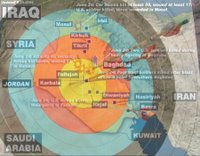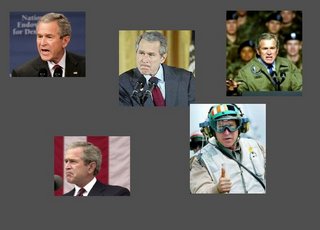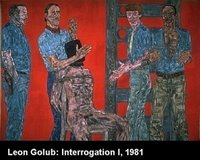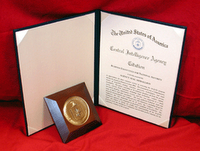
Saturday morning's
weekend edition made my skin crawl. There were two features in which Scott Simon reveals his comfort with the use of torture in the so-called "war on terror." In the
"analysis" segment of the show Simon -- responding to Juan William's remarks on the proposed legislation on detainee treatment -- says (in his soft-spoken, sensitive tone) , "hmmm…one of those nettlesome questions that people who've actually conducted prisoner interrogations sometimes, ah, sometimes raise, is, um, is there some frailty in the system if people who are about to be interrogated know that the people interrogating them will abide by rules."
Incredible! What people who've actually conducted interrogations--let's name them! Frailty in the system? It is clear that Simon is implying that only if torture is a real and practiced threat will interrogations be effective.
Earlier, in the show
Ari Shapiro, reporting on the proposed detainee legislation "compromise," states, "...so you’ve got this definition after definition after defintion after definition and when you get down to the very bottom there’s still this question remaining whether
waterboarding, stress positions, hypothermia and so on are permitted, and some legal experts are saying 'Yes, in fact I think they are permitted under this legislation.'" To which Simon responds,
"This is something local police forces, uh, it must be said I don't know about waterboarding at local police forces, but they deal with this all the time, and that it's considered to be all right to deceive someone you're interrogating because that's transitory mental harm arguably, but not leave long term damage."
This incoherent non-sequitor is truly surreal. Local police forces? Comparing misleading a suspect in questioning [e.g. stating that a co-conspirator has confessed or that one has damning evidence] to near-drownings of detainees. I thought Shapiro might ask Scott what he had been smoking, but instead he responds, "
that's right and because the argument goes, waterboarding only creates mental harm for a short period of time and it doesn't create long lasting harms for years and years to come, some legal experts are saying it might actually be allowed under this legislation."
This kind of soft-pedaling of the assault on the rule of law and on the integrity of human beings is really grotesque. For readers who want to explore the complications and problems with current detainee abuse policy I highly recommend this
piece by Jane Mayer from the February 14, 2005 New Yorker. It is a bit long but really informative. If you don't have time to read it, at least consider the following excerpt from the article:
- "Dr. Allen Keller, the director of the Bellevue/N.Y.U. Program for Survivors of Torture, told me that he had treated a number of people who had been subjected to such forms of near-asphyxiation, and he argued that it was indeed torture. Some victims were still traumatized years later, he said. One patient couldn't take showers, and panicked when it rained. 'The fear of being killed is a terrifying experience,' he said."
 Scott Simon talks about Iva Toguri D'Aquino, who died this week and who was convicted and later pardoned of being "Tokyo Rose," a World War II propagandist. Simon was doing okay describing how the government went after Toguri falsifying evidence to have her jailed and convicted. But then Simon fell into cliche, schmaltz and sappy patriotism. Mentioning that a veterans' organization recently gave Toguri an award, he states, "…as newsman Bill Curtis said yesterday, in this great admiration we have for 'the Greatest Generation' Iva Taguri should be included in those patriots loyal to America."
Scott Simon talks about Iva Toguri D'Aquino, who died this week and who was convicted and later pardoned of being "Tokyo Rose," a World War II propagandist. Simon was doing okay describing how the government went after Toguri falsifying evidence to have her jailed and convicted. But then Simon fell into cliche, schmaltz and sappy patriotism. Mentioning that a veterans' organization recently gave Toguri an award, he states, "…as newsman Bill Curtis said yesterday, in this great admiration we have for 'the Greatest Generation' Iva Taguri should be included in those patriots loyal to America."





























